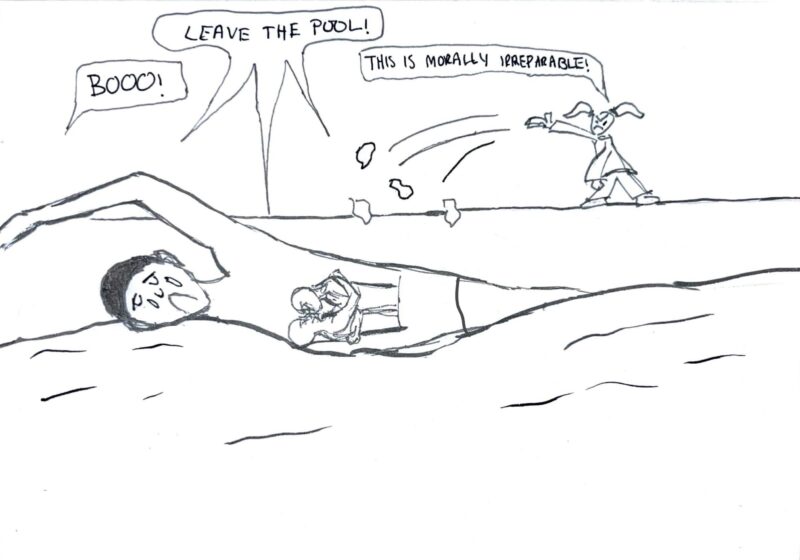You finally get home, dumping your backpack on the floor beside the desk filled with papers. It’s hard to recollect what you’ve done today, because it’s just been event after event after event. At some point, your feet grew a mind of their own and started taking you to destinations you didn’t realize you needed to go to.
So this means, at last, it’s time to relax.
You open up your laptop, eager to catch up on your favorite show when you realize you never got around to that last assignment on your checklist for the day. And what about the several emails that are yet to be responded to, or the towering pile of laundry that has been taking on a distinctly alarming odor in your room? And you’re already behind on studying for the test coming up next week, so are you going to do anything about that? Then all of a sudden, the show on your screen doesn’t feel half as appealing as it did a minute ago, and all you know is that nothing you did today matters.
Because tomorrow, you have to do it all again.
It’s a weird new age of productivity. You’re expected to function at maximum capacity everyday, and any day you don’t, you have to compensate. “Rest days” are looked down upon, and every moment spent with no specific purpose or intention is immediately labeled as unproductive. But a system that doesn’t allow for any replenishment can’t expect to make progress — or can it?
There are those that seem like they’re on top of everything, who make the “24/7 grind” look ideal and aspirational. While some of these people are simply keeping up appearances, others just have a higher threshold for the daily grind. However, just because someone out there can handle an overly busy schedule doesn’t mean that you should be able to as well. There’s no way your goals, your background, your skills, your personality, or anything else lines up exactly with anyone else’s. So why should your capability?
Let’s think about this through a different lens. You are facing one of the most feared circumstances students often face: you have an assignment due in ten minutes, and it will only be accepted if it is printed. Oh, and the only printer in your vicinity isn’t working.
The printer keeps beeping, saying it’s low on ink. The cartridge has to be replaced; otherwise it’s going to produce a faded, half-printed piece of garbage that your professor will laugh at. But instead of trying to replace the cartridge, you insist on pushing every button on the printer, hoping it will work somehow. You hit “print” over and over, hoping some last little bit of ink will pull through and get you your assignment in time. But the more you mess with it, the more lights start flashing, and the more things go wrong.
What you don’t realize is that the printer went through the same thing yesterday with another student, and the one thing it keeps getting denied is an ink cartridge replacement. So how can you expect it to operate at full capacity? You arrive to class empty-handed, disappointed you didn’t accomplish what you wanted to. But unless you replace the ink, you’ll only be disappointed again.
In a moment of retrospection, perhaps this article was also a product of a need to be productive. Sometimes, we can let that slide, because it’s important to keep pushing ourselves. If I stopped writing, I would never write again. Yet at the same time, if I forced myself to write, I would run out of things to say. It comes down to one thing: you don’t have to keep that cartridge level at high at all times, but you do have to learn the difference between when the printer’s lagging and when it’s broken.





